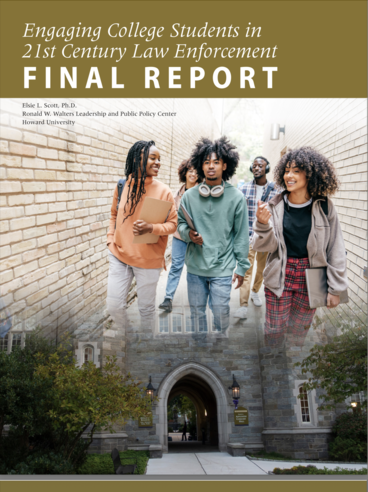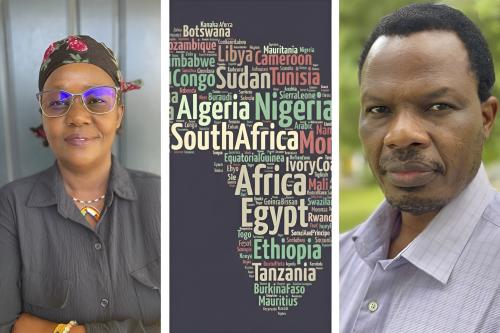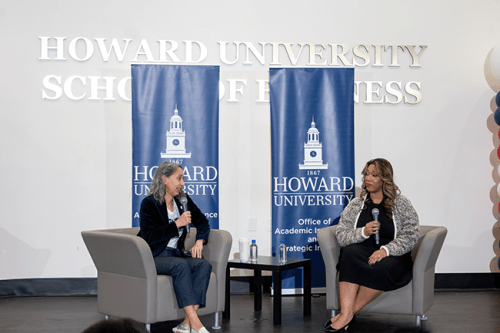 WASHINGTON – Ronald W. Walters Leadership and Public Policy Center published their final report studying police-community relations using college students to help drive the discussion on diversity and inclusion and how best to transform recruitment strategies for law enforcement agencies in the 21st century. This project was supported by a cooperative agreement awarded to Howard University by the U.S. Department of Justice, Office of Community Oriented Policing Services.
WASHINGTON – Ronald W. Walters Leadership and Public Policy Center published their final report studying police-community relations using college students to help drive the discussion on diversity and inclusion and how best to transform recruitment strategies for law enforcement agencies in the 21st century. This project was supported by a cooperative agreement awarded to Howard University by the U.S. Department of Justice, Office of Community Oriented Policing Services.
Under the Community Policing Development grant from the U.S. Department of Justice Office of Community Oriented Policing Services, focus groups at the campuses of four predominantly Black institutions convened to talk about student perceptions of policing, police-community relationships and law enforcement careers. The report details the focus group findings and summarizes students’ suggestions for mending and strengthening police-community relations and recruiting dedicated young people to the profession that were discussed during meetings between police officials and Howard University students.
“We thank the staff of the COPS Office for their direction and support throughout this project, especially our project officer, Sarah Estill,” said Elsie L Scott, Ph.D., director of the Ronald W. Walters Leadership and Public Policy Center. “Without the participation of the focus group volunteers from Howard University, Dillard University, Chicago State University and Merritt College, we would not have been able to conduct this study. We are grateful for the research and administrative work conducted by graduate students over the years of the project.”
Laurie Samuel, Ph.D., a Howard alum, ably served as the focus group facilitator for all four focus groups, and Gary Clark, Ph.D. (Dillard); attorney Marian Perkins (Chicago State); and professor Margaret Dixon (Merritt) recruited students and coordinated the campus logistics by serving as site coordinators at their respective colleges and universities.
Members of the National Organization of Black Law Enforcement Executives (NOBLE) helped frame the questions used in the convenings between students, and law enforcement officials volunteered their time to participate in the sessions. Howard University students shared experiences, some not so pleasant, with the police officials to help identify problems and solutions related to recruiting African-American college students and establishing trust between African-American citizens and the police who serve their communities.
Scott and Naya Young, a political science graduate student, who spent three years working on the various phases of the project, made presentations at the national conferences of NOBLE and the International Association of Chiefs of Police (IACP). Her work was vitally important to the success of the project.
To view the entire report, visit cops.usdoj.gov.
###
About Howard University
Founded in 1867, Howard University is a private, research university that is comprised of 14 schools and colleges. Students pursue more than 140 programs of study leading to undergraduate, graduate and professional degrees. The University operates with a commitment to Excellence in Truth and Service and has produced one Schwarzman Scholar, three Marshall Scholars, four Rhodes Scholars, 12 Truman Scholars, 25 Pickering Fellows and more than 165 Fulbright recipients. Howard also produces more on-campus African American Ph.D. recipients than any other university in the United States. For more information on Howard University, visit www.howard.edu.
Media Contact: Aaliyah Butler; aaliyah.butler@howard.edu





